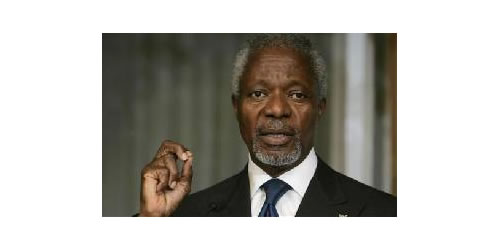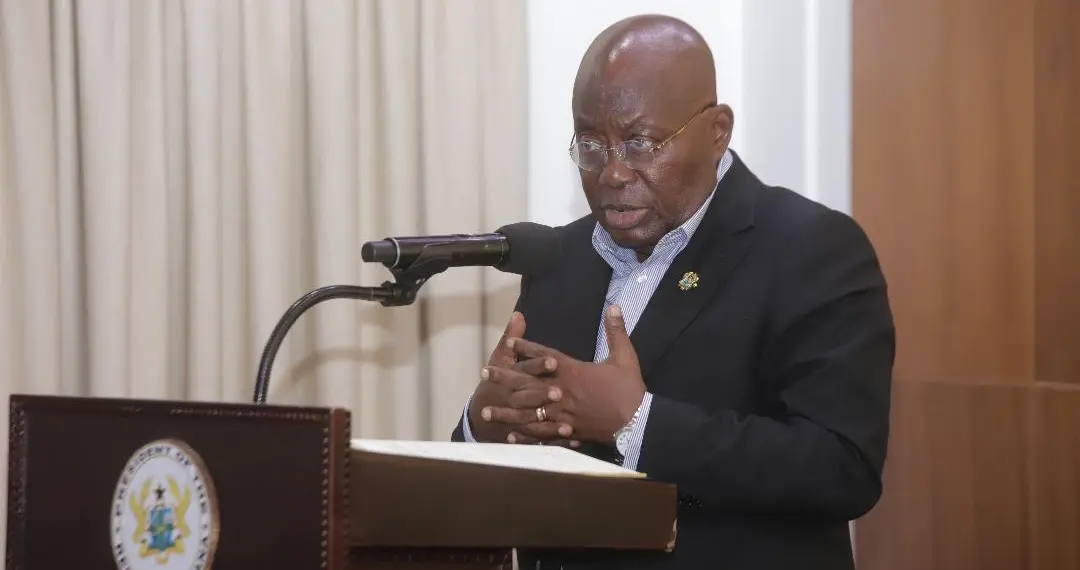Business community must help agric sector – Kofi Annan

Former United Nations Secretary General Kofi Annan has urged the private sector in Africa to show interest in the agricultural sector by supporting it with the appropriate and needed technology.
“Through technology, the private sector can also play a vital role in creating a new food system suited to contemporary needs. Mobile communications, for example, can end the profound isolation of the vast majority of smallholder farmers — which is a primary obstacle to progress.
“That’s why my Foundation recently launched a new initiative that brings together leaders from the private sector, philanthropy, and global food agencies to strengthen the productive capacity of Africa’s smallholders,” said Mr. Annan in a speech delivered at the African Development Bank high conference held in Hammamat, Tunisia, which was themed ‘Feeding Africa’.
The African continent has about 60 percent of the world’s uncultivated arable land, and could grow enough food to not only to meet its own needs but also export surpluses.
Yet hundreds of millions go hungry every day, and every year Africa spends around US$35billion on importing food.
Africa’s farmers — a majority of whom are women — have an unrivalled capacity for resilience and innovation. But they have suffered from neglect, chronic underinvestment, and regional protectionism.
The continent’s population is expected to double by 2050, and will triple by the end of the century.
Thus, Mr. Annan said, for Africa to realise its agricultural potential, governments urgently need to put in place policies that increase public and private investment in agriculture; inspire technology and innovation; and reduce risk — especially climate risk, adding that developed countries must remove unfair trade barriers and eliminate harmful agricultural export subsidies.
“More effort must also be made to improve regional trade in agricultural products. If a farmer cannot sell his/her produce in the next country, it is much harder to develop a profitable business,” he said.
He further stated that a greater emphasis must be put on “climate-smart” agriculture to enable farmers adapt to changing weather patterns and growing seasons that threaten food production.
“Climate-smart solutions — such as the use of drought- and heat-tolerant crops and improved irrigation systems — are critical for food and nutrition security, farming resilience, and higher productivity,” he said.
He added that the current sustainable development goals which focus on three dimensions — economic, social and environmental — cannot be realised unless world leaders take action to tackle climate change.
“At the UN Climate Change Conference in Paris in December, governments have to conclude a fair, universal and binding climate agreement, by which every country commits to reducing emissions of greenhouse gases. Fairness demands that wealthier countries take the lead.
“They must provide financial resources and technologies to help poorer countries adapt to the impacts of climate change, and cut emissions by making a transition to a low-carbon future. Specifically, developed countries must deliver on their commitment to mobilise US$100billion annually for the Green Climate Fund,” he said.
Source: B&FT



